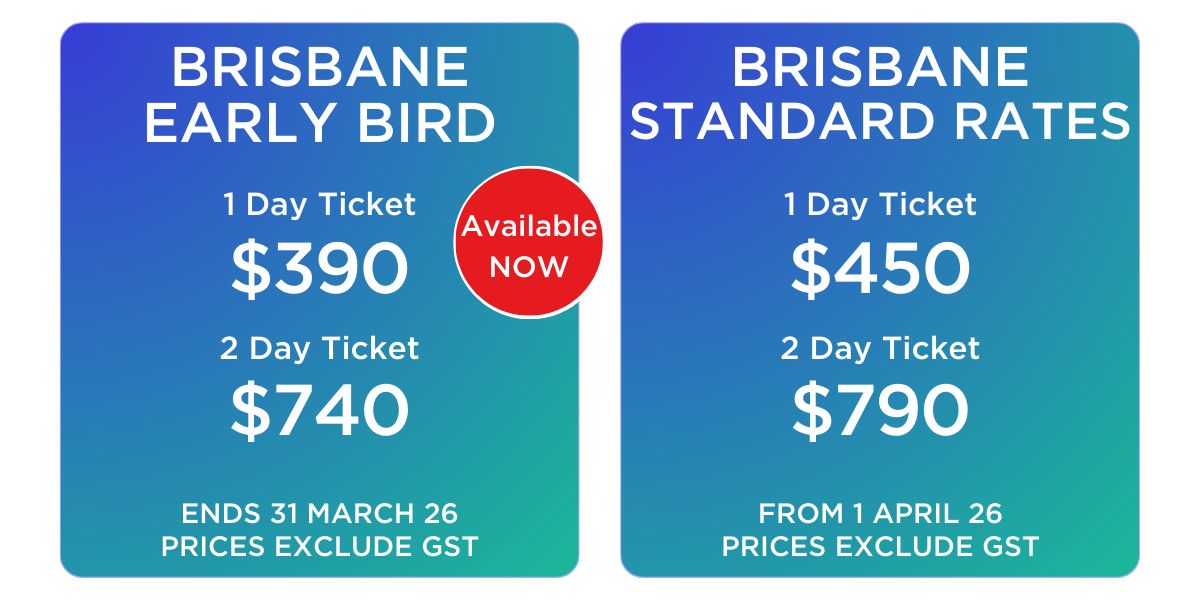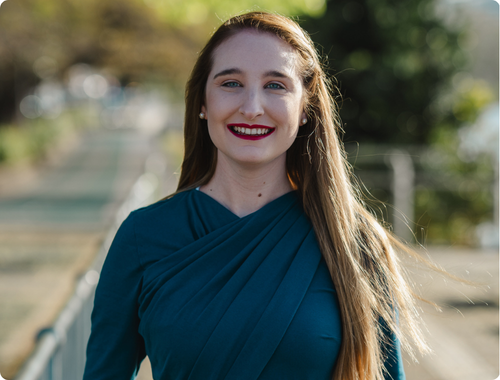Diverse Learners Symposium
Thursday 14 and Friday 15 May 2026
Brisbane Convention & Exhibition Centre
How do we create classrooms where every student feels seen, supported, and empowered to thrive? The Diverse Learners stream explores how educators can meet the needs of students with a wide range of learning profiles, backgrounds, and challenges—moving beyond traditional “special needs” models to embrace inclusive, strengths-based approaches. This two-day symposium brings together educators, academics, health professionals, and specialists to share practical strategies, current research, and real-world insights for supporting diverse learners in today’s classrooms.
Focus Areas:
1. Neurodiversity & Learning Differences
ADHD, autism spectrum, dyslexia, dyspraxia, and other neurodivergent profiles
Strategies for differentiation, scaffolding, and sensory-friendly environments
Strengths-based approaches to neurodiversity in education
2. Mental Health & Emotional Wellbeing
Supporting students with anxiety, depression, trauma, and emotional regulation challenges
Building resilience and social-emotional learning (SEL) into everyday practice
Collaborating with families and allied health professionals
3. Inclusive Classroom Practices
Universal Design for Learning (UDL) and inclusive pedagogies
Culturally responsive teaching and supporting EAL/D learners
Creating safe, respectful, and identity-affirming spaces
4. Behaviour & Engagement
Positive behaviour support and trauma-informed approaches
Managing challenging behaviours with empathy and consistency
Building strong relationships and classroom culture
5. Whole-School Inclusion
Inclusive policies, leadership, and professional development
Co-teaching, learning support, and multi-tiered systems of support
Transition planning and pathways for diverse learners
DIVERSE LEARNERS SYMPOSIUM CONFERENCE SPONSOR
PROGRAM | Thursday 14 May 2026
*Program subject to change
Converting Neurodiversity Into Neuro-advantage
Students with neurodiversity include students who are gifted, those who are oppositional or have dyslexia, or experience attention issues such as ADHD, or have experienced trauma as well as those who are on the spectrums. Each of these groups have strengths as well as vulnerabilities that can be catered for. Teachers are equipped with strategies as well as the most recent tech that overcomes learning disadvantages for neurodiverse students.
Differentiation Rewired: Neuroscience, Wellbeing and the Future of Diverse Learning
In an era where classrooms are more diverse—and more digitally complex—than ever before, traditional models of differentiation are no longer enough. Today’s learners bring a spectrum of neurological, emotional, and environmental differences into the classroom. Understanding how the brain learns is now as essential as what we teach. We will explore how educators can use brain-based principles to:
reduce cognitive overload
support neurodivergent and gifted students
balance digital and emotional wellbeing
design learning that engages all students through targeted scaffolds and stretch.
This session bridges the gap between science and strategy, offering tangible classroom applications for teachers, leaders, and learning support staff. Participants will leave with a renewed understanding of how to create emotionally safe, high-impact learning environments that honour every learner’s unique neurological fingerprint.
Narratives That Connect: One Approach, Many Outcomes
Oral narratives are more than just stories, they’re a powerful, multi-purpose tool that can unlock language, connection, and learning for students with Language Disorder, Developmental Language Disorder (DLD) and language difficulties, and can simultaneously support diverse learning needs, promote inclusion, and foster social and emotional wellbeing.
Grounded in a strengths-based and culturally responsive lens, this session will explore how oral narratives can:
Support neurodivergent learners (including students with DLD, autism and other diverse language profiles) through flexible, scaffolded language intervention;
Enhance social-emotional learning by using narrative to build skills, emotional vocabulary, and regulation through safe and structured storytelling and shared experiences;
Promote inclusion and identity by creating space for diverse learners, to share their stories in affirming, meaningful ways.
10:40 – 11:00am
Q&A Panel with above presenters
11:00 – 11:30am
Morning Tea
11:30 – 12:00pm
From Diagnosis to Discovery: A Teacher’s Journey into Dyscalculia
The session will begin with an overview of the indicators and characteristics of Dyscalculia, followed by techniques and supports that benefit learners experiencing Dyscalculia, maths difficulties, and maths anxiety.
In addition to academic strategies, the session will explore teaching and learning frameworks that support cognitive and emotional development and examine the role of executive functioning in shaping both educational and personal outcomes for dyscalculic learners.
12:00 – 12:40pm
Teach the Nervous System First
This session helps principals and school leaders turn trauma-aware practice and emotion regulation into everyday routines that lift learning time. We begin with a short primary classroom story. In table groups, we quickly spot the trauma-related signs. Then we move to the leadership work: how to make calm, predictable routines standard across classrooms—without adding heavy paperwork.
12:40 – 1:00pm
Q&A Panel with above presenters
1:00 – 2:00pm
Lunch
From Cognitive Science to the Classroom: Practical Strategies to Support Neurodivergent Learners
Executive function challenges can significantly impact learning, especially for neurodivergent students. This workshop explores how research on executive function can be translated into inclusive classroom strategies that support planning, organisation, attention and emotional regulation. Drawing on practice-based insights from The Sycamore School, a specialist setting for autistic learners, we will unpack what executive functioning looks like in real classrooms and share practical supports that benefit all students.
Participants will leave with evidence-informed tools, case examples and insights into how a cognitive science lens can enhance engagement and independence for diverse learners.
3:10 – 3:30pm
Q&A Panel with above presenters
3:30 – 3:45pm
Ask the Audience: Delegates share the one idea that they will work on next week
4.00 – 5.30pm
Summit Social - a networking event for exhibitors, speakers and delegates.
PROGRAM | Friday 15 May 2026
*Program subject to change
Nurturing the Mind of a 'Livewired' Child!
What are the most important things we can do to nurture the development of children’s brains and minds and by association enhance learning experiences? Equally important, what might limit or hinder those opportunities? The first question has an extensive body of research to support it and this will be explored by looking at new understandings of how the brain grows and develops and how experiences shape a child’s life and future. The second question has an equally expansive corpus of research, and key elements of this are important considerations when it comes to raising and educating young minds.
This presentation will unpack all of the key points noted above in a user-friendly and interactive way. The aim is to provide food for thought and strategies related to fostering environments that positively contribute to the mind of a ‘livewired’ child.
9:40 – 10:10am
Neuroinclusivity in Action: What It Feels Like to Learn with a Different Brain
Every classroom includes students whose brains process, learn, and behave differently, yet many teachers still feel unsure how to recognise and respond to neurodiverse needs. In this powerful and practical session, Scott B Harris draws on 17 years of lived experience with a traumatic brain injury to give teachers a firsthand understanding of what neurodiversity feels like, and how to create classrooms where every learner can thrive.
Combining evidence-based research (developed in collaboration with Professor John Hattie) and practical classroom strategies, this session takes participants through interactive simulations that mirror real neurodiverse experiences such as cognitive dysfunction, disorganisation, and sensory overwhelm. Teachers will walk away with a deeper understanding of executive functioning, simple adjustments that de-escalate behaviour, and classroom tools that make learning more inclusive, not just for neurodivergent students, but for all.
10:10 – 10:40am
Navigating Education with Adverse Childhood Experiences: A Dual Lens of Parent and Educator
Children with adverse childhood experiences (ACEs), particularly those who have been in out of home care, face unique challenges in educational settings. This session, led by an educator and carer with lived experience of neurodivergent children impacted by trauma, will explore the profound impact of ACEs on learning, behaviour, and emotional regulation.
Attendees will gain insights into the dual perspective of a parent and educator, with practical strategies to create trauma-informed, supportive environments that foster growth, safety, and resilience for all students.
10:40 – 11:00am
Q&A Panel with above presenters
11:00 – 11:30am
Morning Tea
Spotting Hidden Struggles and Creating Classrooms Where Students Don’t Have to Pretend
Masking (when students hide their needs, distress, or differences in order to “fit in” at school) is one of the most overlooked challenges in education. These students often appear quiet, compliant, or high achieving, yet crash at home or in safe spaces.
In this interactive session, we will unpack the hidden cost of masking and how educators can learn to spot the subtle red flags. Participants will leave with a clear understanding of how masking affects learning, how to respond compassionately when unmasking looks “messy,” and how to build classrooms where every student feels safe enough to be themselves.
12:00 – 12:40pm
Creating Buzz for All Learners: Inclusive STEM through Sustainability and Design
Discover how to engage diverse learners in critical and creative thinking through authentic, real-world STEM challenges. This hands-on workshop immerses educators in the urgent issue of the Varroa destructor mite and the essential role of European Honey Bees in Australian agriculture and biodiversity. Grounded in Universal Design for Learning (UDL) and inclusive pedagogies, participants will explore adaptable strategies that differentiate learning and support students with a range of abilities and behaviours.
The session will also demonstrate how Harvard University’s Project Zero thinking routines can extend classroom practice to deepen thinking and foster transferable skills. By connecting sustainability, agriculture, and STEM design processes, educators will leave equipped with practical tools to create inclusive, engaging, and thought-provoking STEM experiences that empower all learners to thrive.
12:40 – 1:00pm
Q&A Panel with above presenters
1:00 – 2:00pm
Lunch
Thriving Minds, Thriving Classrooms
This session is designed to deepen the understanding of brain development, basic human needs, and the impact these have on behaviour and wellbeing. Using a trauma-informed lens, it highlights the importance of positive relationships and connecting habits to support student engagement and inclusion.
We will explore links between brain development, behaviour and wellbeing. It examines strategies to understand behaviour and manage challenging behaviour in the classroom and school environment.
We will practice connecting conversations (to unpack behavioral incidents) in small groups, developing co-created student led behaviour plans, profiling staff and student needs and how to use this information to build a needs satisfying classrooms for staff and students.
Participants will gain valuable knowledge and understanding around brain development and emotional wellbeing in order to promote positive behaviour and maximum student engagement in an inclusive learning environment. You will leave with practical tools and strategies ready to use in the school environment because Thriving Minds lead to Thriving Classrooms where both staff and students are empowered to succeed.
3:00 – 3:30pm
Ask the Audience: Delegates share the one idea that they will work on next week


















